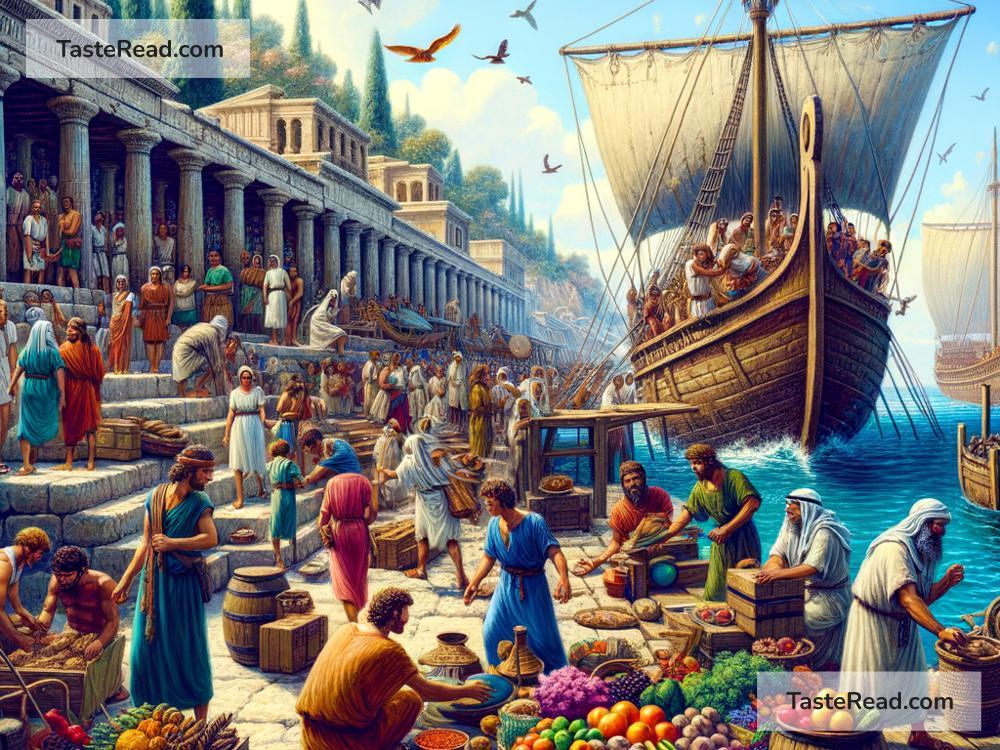The Influence of Phoenician Trade on Mediterranean Cuisine
The Mediterranean region is known for its vibrant dishes, bursting with flavors that can transport anyone to its sunny coasts and rich landscapes through taste alone. But have you ever wondered how the Mediterranean came to acquire such a diverse and delightful palette? The answer, in part, lies with the ancient Phoenicians and their extensive trade network that influenced the culinary traditions we cherish today.
The Phoenicians were master seafarers and merchants of the ancient world, originating from the coastal region of what is now Lebanon, northern Israel, and parts of Syria and Palestine. Around 3,000 years ago, they commenced their journeys across the Mediterranean, establishing trade routes that connected various civilizations. As they sailed from one port to another, they didn’t just trade goods like timber, glass, and purple dye (which they were famous for); they also exchanged culinary ingredients, methods, and ideas, weaving a tapestry of flavors that has left a lasting impact on Mediterranean cuisine.
The Spice Route: A Flavor Revolution
One of the biggest contributions of the Phoenicians to Mediterranean cuisine was the introduction of new spices and ingredients to the regions they traded with. Imagine Italian cuisine without basil, oregano, or thyme, or Spanish food without saffron. These flavors, now integral to Mediterranean dishes, were spread through Phoenician trade routes. They helped introduce spices from the East, such as cumin, cinnamon, and pepper, which transformed the culinary landscape of the Mediterranean. This spice route not only enhanced flavors but also connected various cultures through their cuisines.
The Gift of the Grapevine: Wine Culture
The Phoenicians also played a pivotal role in the spread of viticulture (wine-making) across the Mediterranean. They carried with them not just the skills of wine-making but also grapevines, planting the seeds of vineyards in regions like Sicily, Italy, and the southern coast of France. This led to the development of local wine varieties and traditions that continue to thrive today. Wine became a staple of Mediterranean cuisine, enjoyed not just for its taste but for its social and cultural significance.
The Sea’s Bounty: Seafood and Trade
Given their prowess at sea, it’s no surprise that the Phoenicians were instrumental in spreading various types of seafood across the Mediterranean. They introduced techniques for fishing, preserving, and preparing seafood, influencing local diets significantly. For instance, the method of salting fish to preserve it, which led to the creation of dishes like the Spanish ‘bacalao’ (salted cod), can be traced back to Phoenician traders. Their seafood trade not only enriched diets but also established the Mediterranean’s long-standing relationship with sea-to-table eating.
The Olive Branch: Olive Oil and Agriculture
The cultivation and trade of olives and olive oil is another area where the Phoenicians left their mark. They enhanced olive cultivation techniques and spread them along their trade routes, making olive oil a central ingredient in Mediterranean cuisine. It’s hard to imagine this cuisine without olive oil today, whether it’s used in cooking, as a dressing, or even for dipping. The Phoenicians’ knowledge of agriculture extended to fruits and vegetables as well, introducing new varieties to the lands they visited and thus diversifying the region’s agricultural produce.
A Culinary Blend: The Mixing of Culinary Traditions
Perhaps the most significant influence of Phoenician trade on Mediterranean cuisine is the blending of culinary traditions. As they established colonies and engaged with different cultures, they acted as culinary liaisons, sharing recipes and cooking methods. This fusion of culinary ideas led to the creation of dishes that combined elements from various cultures, contributing to the rich, diverse culinary landscape of the Mediterranean that we know today.
Legacy of Flavors
The influence of Phoenician trade on Mediterranean cuisine is a testament to how trade, exploration, and cultural exchange can shape culinary traditions. From spices that spark flavor revolutions to wine culture, seafood, olive oil, and the blending of recipes, the Phoenicians have left an indelible mark on the way we eat and enjoy food in the Mediterranean region.
Their legacy is a reminder of the power of sharing and exchange – that by traversing seas and connecting cultures, something as universal as food can become an ever-evolving tapestry of taste, bringing different people and traditions together. The next time you savor a Mediterranean dish, take a moment to appreciate the ancient mariners who, thousands of years ago, helped set the table for the delicious diversity we enjoy today.


